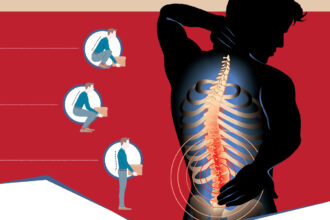The search for purpose and meaning in life is a never-ending journey that leads people to pursue more profound comprehension and contentment. The quest for meaning, which has inspired everything from ancient philosophical investigations to modern psychological studies, gives life purpose and direction and shapes our identities, goals, and feelings of community. This article explores the intricacies of meaning and purpose, looking at how they affect people’s overall well-being and the basic issues of what life’s purpose is.
The Fundamentals of Purpose and Meaning in Life
Purpose and meaning in life are related ideas that give our lives depth, significance, and consistency. While meaning refers to the larger significance and meaning we attach to our experiences and existence, purpose typically refers to a particular goal or target that drives and directs our actions. When combined, they provide a sense of purpose, contentment, and inherent worth, serving as the cornerstone of existential fulfillment.
The Look for Purpose in Contemporary Culture
Many people in today’s fast-paced, globally linked world struggle with existential issues about the meaning and purpose of their existence. Feelings of emptiness, disillusionment, and existential distress can result from losing sight of greater existential problems in the middle of daily life’s hustle and bustle. Nonetheless, the pursuit of meaning continues to be a common human endeavour that cuts beyond social, religious, and cultural divides.

Origins of Significance and Intent
Numerous things can give one a sense of meaning and purpose, from meaningful employment and personal connections to spirituality and artistic expression. Some find meaning in knowledge acquisition, personal development, or social justice; others find fulfilment in artistic undertakings, spiritual practices, or humanitarian endeavours. In the end, purpose and meaning in life come from very subjective sources that are a reflection of each person’s particular values, interests, and goals.
The Effects of Meaning and Purpose on Well-Being
The substantial influence of meaning and purpose on one’s own well-being and level of happiness with life has been demonstrated by research in positive psychology and psychology. People who report feeling that their lives have a significant purpose and meaning in life are more likely to be happy, resilient, and psychologically flourishing. Furthermore, better mental health outcomes, lower stress levels, and a stronger sense of purpose and fulfilment are all linked to meaningful lives.
Examining the Meaning of Life
Philosophers, theologians, and other intellectuals have been fascinated by the subject of life’s purpose throughout history, which has led to the development of a diverse range of existential, philosophical, and religious viewpoints. Many philosophical traditions emphasize that the pursuit of virtue, wisdom, or personal progress is important to the goal of life, although perspectives on this matter differ greatly. Religious frameworks frequently see life as a path leading to spiritual enlightenment, salvation, or connection with the divine, attributing divine meaning to human existence.
Existential Views on the Meaning of Life
The 20th-century philosophical movement known as existentialism provides thought-provoking explanations for the nature of human life and the search for meaning. Existentialists like Jean-Paul Sartre and Albert Camus argue that people are free to construct their own meaning by engaging with the world authentically, despite the fact that existence is fundamentally meaningless. The search for meaning, according to existential philosophy, entails accepting the ambiguity and uncertainty that come with life and facing the existential facts of freedom, responsibility, and mortality.
Handling Existential Questions
A desire to confront the complexity of human existence, introspection, and reflection are necessary while navigating existential concerns about life’s meaning. Even if there may never be clear answers, the process itself can be extremely enlightening and increase one’s self-awareness, resiliency, and existential honesty. A feeling of purpose and meaning in life can be developed in the face of uncertainty by taking part in meaningful activities, making connections with others, and investigating one’s values and beliefs.
Explore More: Interpersonal Relationships: Identifying the Patchwork
Accepting the Journey
In summary, the search for purpose and meaning in life is a complex and intensely personal undertaking that is central to the human experience. People look for meaning and fulfilment in their lives through a variety of activities, including meaningful jobs, spiritual pursuits, philosophical study, and interpersonal relationships. Even while the pursuit of meaning might be difficult and uncertain at times, in the end, it is a path of self-awareness and existential development that gives life significance, complexity, and richness.

FAQs
What effects do having purpose and meaning in life have on one’s health and well-being?
According to research, those with a strong sense of purpose and meaning in life also tend to have better overall health outcomes, such as lower stress levels, a lower risk of anxiety and depression, and even improved immunological function. Having a purpose in life can improve one’s resilience, motivation, and outlook on life, all of which can lead to improved mental and physical health.
Can a lack of purpose and meaning in life have a detrimental effect on one’s health?
Indeed, a lack of direction or meaning in life can negatively impact one’s health and general well-being. People who lack purpose or feel aimless may be more stressed out, feel empty or unsatisfied, and have a higher chance of developing mental health conditions including anxiety and depression. Moreover, undesirable habits like substance abuse or disordered eating may be exacerbated by a lack of purpose.
How might people develop a feeling of direction and significance in their lives?
Introspection, self-discovery, and coordinating one’s behaviours with one’s ideals and goals are all necessary for developing a sense of purpose and meaning in life. This could entail pursuing one’s passions and interests, making meaningful objectives, participating in fulfilling activities, fostering meaningful relationships, and thinking back on one’s values and beliefs. In the process of self-discovery, seeking advice from mentors, therapists, or spiritual leaders can be beneficial.
Exist any particular hobbies or ways of living that encourage a feeling of direction and significance in life?
Yes, a sense of purpose and meaning in life can be fostered by a variety of activities and practices. These could be doing charitable work or volunteering, pursuing creative or artistic efforts, establishing and achieving meaningful objectives, spending time in nature, practising mindfulness or meditation, or delving into spiritual or philosophical topics. In the end, each person will find meaning and purpose in different things.
Does longevity have anything to do with finding meaning and purpose in life?
Studies indicate that a feeling of direction and significance in life could be linked to longer life expectancy and better general health results. According to studies, those who report having a strong sense of purpose in life typically live longer and in better health than others who feel directionless or aimless. This could be partly explained by the beneficial impacts of purpose on mental and emotional health, as well as by its possible influence on resilient behaviour in the face of hardship.









